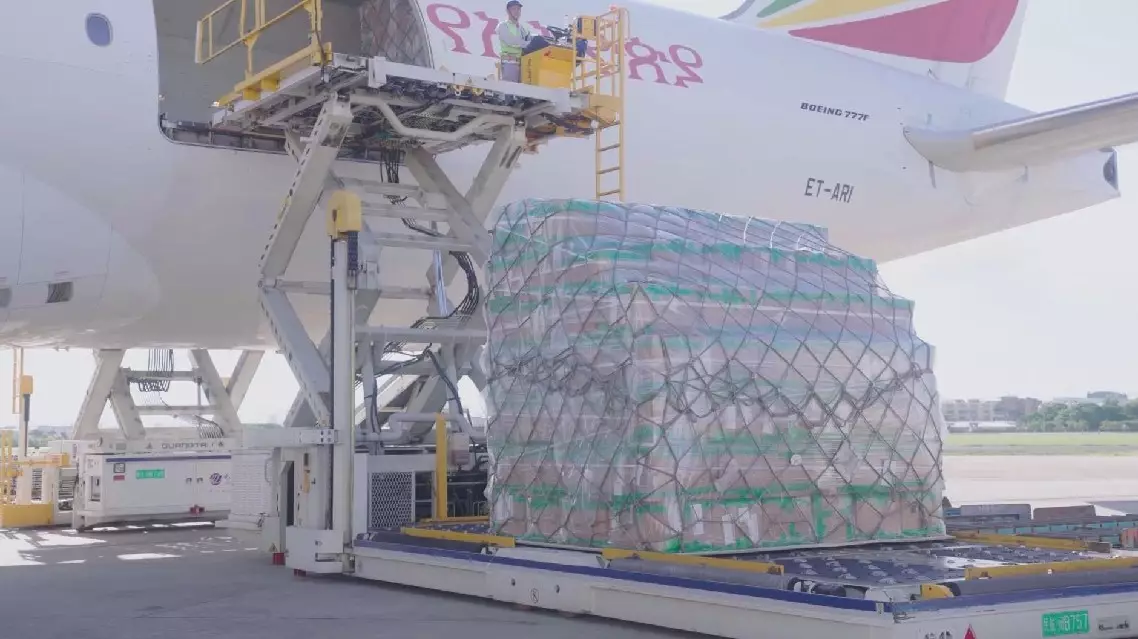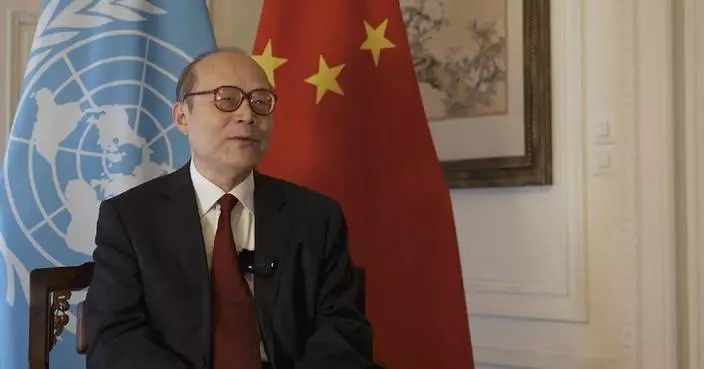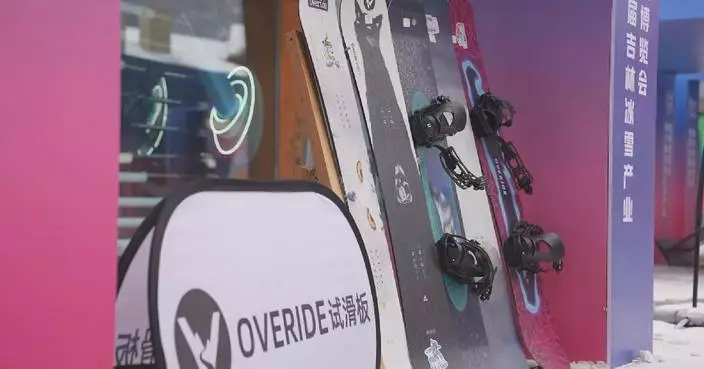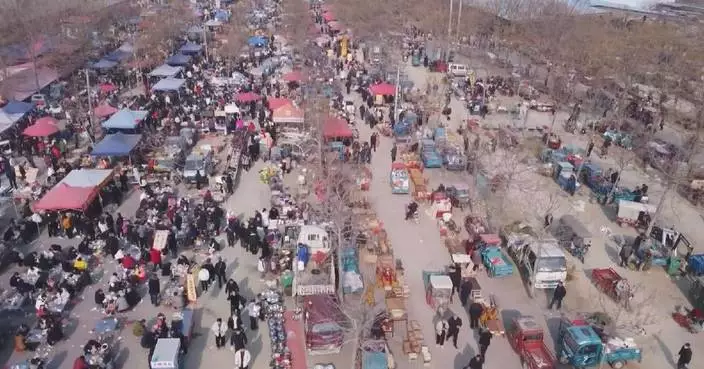An air cargo route between China and Brazil has facilitated faster and more efficient transport of goods between the two countries and created more development opportunities.
Since it started in February 2023, this air cargo route has transported tens of tons of different types of goods between Xiamen, a city in east China's Fujian Province, and Sao Paulo in Brazil twice a week.
Operated by Ethiopian Airlines, the air route has facilitated the export of cross-border e-commerce goods, medical supplies, and high-tech products from China, while also supporting the import of seafood and fruits from Brazil.
"We guided the expansion of the cross-border e-commerce supervision center, doubling the warehouse area from 3,100 square meters to 6,500 square meters. We also provide one-stop services for warehousing, logistics, and customs clearance for commodities shipped via the air route. Security checks and loading for export products, and the unloading and sorting for imported products are simultaneously conducted, thus eliminating redundant handling processes. The entire process, from security check to full loading onto the aircraft, now takes just two hours," said Zhang Shuzhen, deputy section chief of the cross-border e-commerce supervision division of Xiamen Airport Customs.
Since the start of this year, 212 flights have transported nearly 15,000 tons of goods between Xiamen and Sao Paulo, including 5,000 tons of imported seafood and fruits from Brazil.
Over 12 million export parcels have been shipped, and the cargo load rate is consistently at 100 percent, meaning that each flight departs from Xiamen are fully loaded.
By the end of the year, the total export parcels are expected to reach 15 million.
"Thanks to this route, we have sold our e-commerce products to South America, which have grown from clothing and footwear to pet supplies, kitchen tools and etc. Many sellers from Fujian Province have established their own e-commerce platforms in Brazil, creating a complete supply chain system from production to distribution," said Chen Wuchao, general manager of Xiamen Lianduo Trading Company.
The route is part of Xiamen's broader efforts to strengthen ties with other BRICS nations, following the city's hosting of the 9th BRICS Summit back in 2017.

Air cargo route between China and Brazil facilitates two-way goods transport
China has intensified efforts to streamline payment options for foreign visitors this year, aimed at enhancing their travel experience and boost inbound tourism, which has seen steady growth in recent years.
From January to November, the number of foreign arrivals in China surged by 86.2 percent year on year, reaching 29.2 million.
This influx of tourists has been accompanied by a significant rise in the use of foreign payment methods.
In the first half of this year alone, transaction volumes of foreigners using overseas wallet apps to pay for goods and services in China increased more than sevenfold, according to data from NetsUnion Clearing Corporation, a Chinese online payment clearing house under the People's Bank of China.
During the same period, the number of foreign wallet transactions in China hit 28.75 million, up 5.29 times from the previous year. Meanwhile, transaction volume reached 5.32 billion yuan (about 729 million U.S. dollars), a 7.67-fold increase from last year's figures.
Overseas bank cards are now widely accepted across China, and Chinese mobile payment giants Alipay and WeChat Pay have integrated Visa and Mastercard, allowing foreign visitors to pay seamlessly like locals. "We managed to link our two credit cards to Alipay, and everything worked fine. We looked on the Internet, there are some blogs that explain how to create your Alipay account and how to link your credit card. We only paid with the QR code, almost did not use cash," said a foreign visitor.
"Our collaboration with Alipay and WeChat, is just the first start. Really what it enabled is our global network, our global consumer base, and our global partner network with all the financial institutions. And also another good example is we just announced in September that the Beijing subway can accept direct Mastercard payment. So, as an inbound traveler to Beijing, for them to take subway, they just need to tap their Mastercard at the gate and they can enter the subway," said Dennis Chang, president of Mastercard Greater China.
In September, Beijing's subway system launched a service allowing passengers to tap their Mastercard or Visa card at the gate, eliminating the need for physical tickets.
Since Sept 13, a total of 490 stations across the city's subway network have adopted this new system, further improving convenience for foreign visitors.

China expands payment options for int'l inbound tourists










